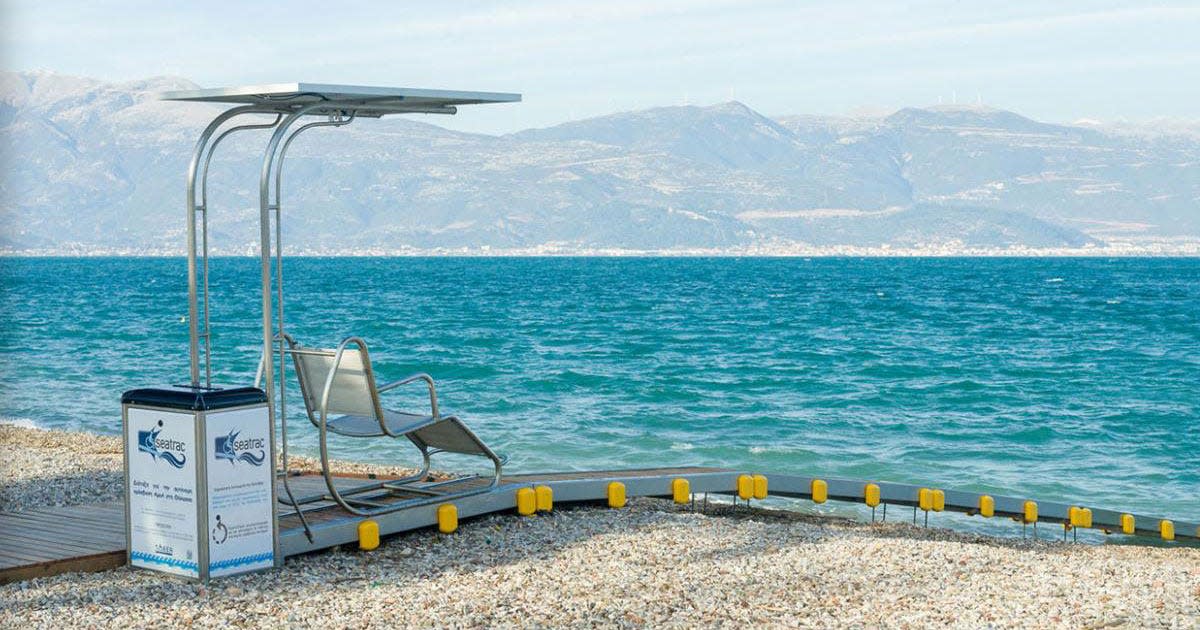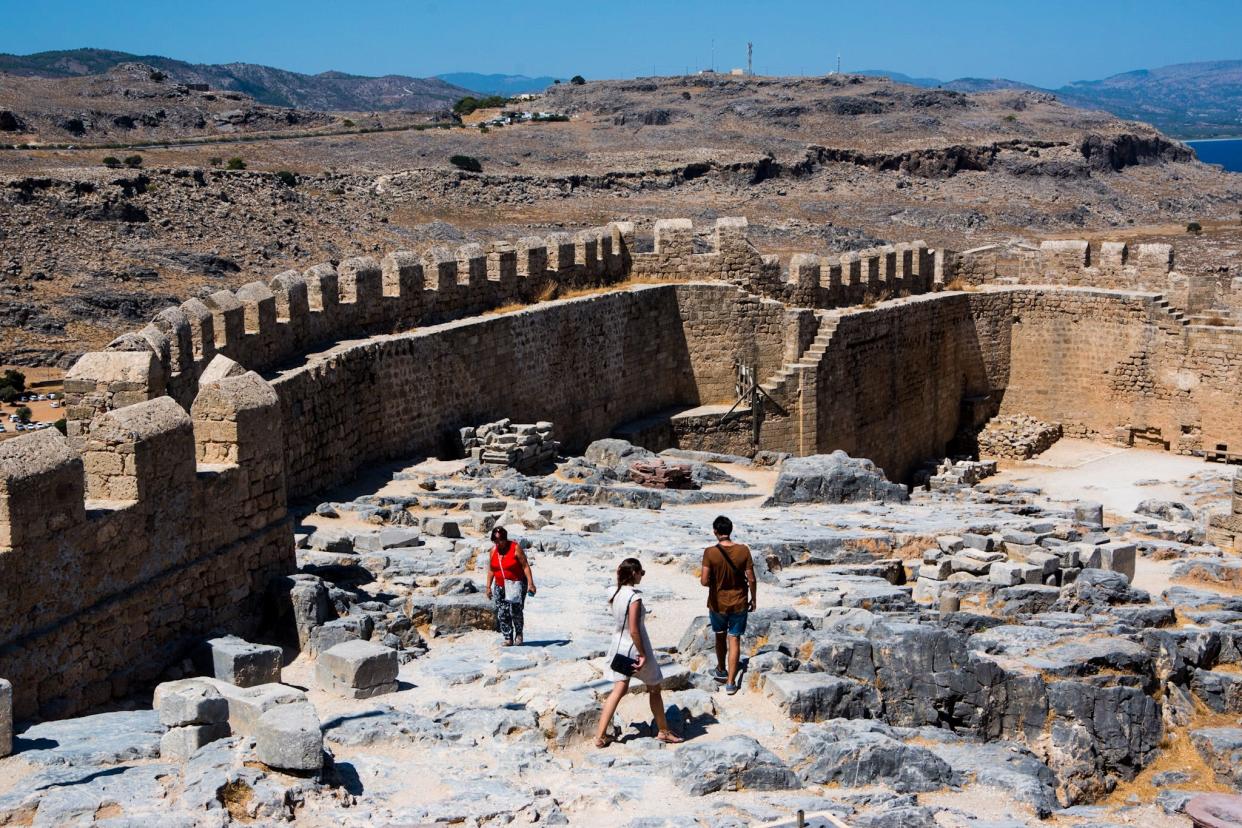Greece pledges to make over 200 beaches more accessible. Here's how.
More people will soon be able to enjoy Greece’s clear blue waters as the country pledges to make hundreds of its beaches accessible to those with mobility challenges, including those in wheelchairs and the elderly.
The country will install remote-operated ramps at 287 of its beaches to make them wheelchair-friendly, officials said at a press conference last month. The system is designed by the Greek company Seatrac.
Other infrastructure improvements include better parking areas and bathroom and changing facilities, plus more ramps.
“Equal access to the sea is an inalienable human right,” Greece’s Minister of Tourism’s Vassilis Kikilias said during the press conference, according to Greek Reporter.
“People with disabilities and people with limited mobility are given the opportunity to participate in beach activities with family and friends, enhancing the quality of life for everyone,” Kikilias added.
The Seatrac installation aligns with the country’s goal of becoming an inclusive tourist destination and is part of a 15 million euro (around $16.6 million) project called the “Creation of Integrated Tourist Accessible Sea Destinations.”
'If I can do this, I can do anything': How this Tahoe nonprofit empowers travelers with disabilities
'At the airlines' mercy': Travelers say carriers must treat mobility devices more carefully
How does the Seatrac system work?

The Seatrac system, first developed in Greece in 2012, is an automatic ramp that transports people right up to or into the water using a sliding chair. If someone is in a wheelchair, they can adjust the Seatrac chair to match the height of their own wheelchair and shift onto the Seatrac chair. Handrails are at the end of the track to help people get in and out of the water. At the starting point of the ramp is a shower, which can be turned on and off with the press of a button.
A waterproof remote allows riders to control the chair without assistance. If there’s no on-site remote, people can get their own for free from the company - even visitors. Use of the Seatrac system is free as well.
Unfortunately, the system can’t be used if the waves are rough.
“Seatrac is not just a product, it’s a unique experience,” said Ignatios Fotiou, director of TOBEA, the company behind the system. “People with mobility issues, pregnant women, the elderly and the caregivers use Seatrac to feel free and gain dignity.”
Which beaches have undergone the accessibility project?
Greek officials said 147 beaches already have Seatrac systems installed, including some on islands such as Crete and Thessily.
Other improvements are showing promise as well. In 2020, Crete’s Chania, a seaside city with a beach that has a Seatrac system, earned an Access City Award special mention for using technology to manage its accessible parking.
Is Greece an accessible tourist destination?

Debra Kerper, an accessible travel specialist for Cruise Planners, applauded Greece for “working to improve their accessibility and universal design” for all types of visitors.
She visited the country when it was preparing for the 2004 Athens Olympics and Paralympics, and felt like accessibility “wasn’t great, especially in the old city of Plaka.” Greece is known for its hilly and steep terrain, where even some beaches are only accessible by boat.
Since then, the country has not only improved access to beaches but also to top attractions, such as installing a wheelchair-accessible elevator at the Acropolis in 2020.
The Greek government mandated that all ferries needed to be disability-friendly by 2019, ordering the inclusion of designated parking spaces, areas where wheelchairs can be secured and elevators or lifting devices where applicable.
Kerper is planning a group trip to Greece in Oct. 2023, and her itinerary includes venturing to Agistri Island by ferry for a day trip, and exploring Athens on a walking and rolling tour. “We’re all really excited about going and seeing the accessibility there,” Kerper said.
Kathleen Wong is a travel reporter for USA TODAY based in Hawaii. You can reach her at kwong@usatoday.com
This article originally appeared on USA TODAY: How Greece is making its beaches wheelchair-friendly